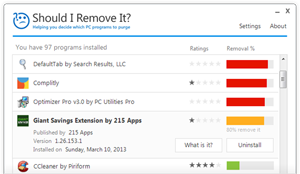Import table
advapi32.dll
FreeSid, CheckTokenMembership, AllocateAndInitializeSid, RegCloseKey, RegQueryValueExW, RegOpenKeyExW, RegSetValueExW, RegCreateKeyExW, DeregisterEventSource, ReportEventW, RegisterEventSourceW, SetSecurityDescriptorDacl, SetEntriesInAclW, InitializeSecurityDescriptor, GetSecurityDescriptorDacl, RegDeleteKeyValueW, CreateWellKnownSid, DuplicateToken, GetTokenInformation, OpenProcessToken, TraceMessage, GetTraceEnableFlags, GetTraceEnableLevel, GetTraceLoggerHandle, RegisterTraceGuidsW, UnregisterTraceGuids, ConvertStringSecurityDescriptorToSecurityDescriptorW, CloseTrace, StartTraceW, EnableTrace, ControlTraceW
kernel32.dll
GetLastError, GlobalLock, GlobalFree, GlobalReAlloc, GlobalUnlock, GlobalSize, GlobalAlloc, HeapFree, GetProcessHeap, HeapAlloc, SetLastError, InterlockedIncrement, InterlockedDecrement, EnterCriticalSection, LeaveCriticalSection, Sleep, InitializeCriticalSectionAndSpinCount, DeleteCriticalSection, CloseHandle, WriteFile, GetFileSize, CreateFileW, ReleaseMutex, FormatMessageW, GetCurrentThreadId, lstrlenW, GetTimeFormatW, GetDateFormatW, WaitForSingleObject, ExpandEnvironmentStringsW, LoadLibraryW, OutputDebugStringA, IsDebuggerPresent, SetFilePointer, GetLocalTime, WideCharToMultiByte, LocalFree, SetErrorMode, DeleteFileW, GetDiskFreeSpaceExW, GetTempFileNameW, GetVolumeInformationW, DeviceIoControl, GetDriveTypeW, GetConsoleOutputCP, WriteConsoleW, GetConsoleMode, GetFileType, GetStdHandle, VerifyVersionInfoW, VerSetConditionMask, GetCurrentProcess, ReleaseSemaphore, SetEvent, SetThreadUILanguage, CreateSemaphoreW, WaitForMultipleObjects, SetConsoleCtrlHandler, ResetEvent, CreateEventW, GetVolumePathNamesForVolumeNameW, GetVolumeNameForVolumeMountPointW, DuplicateHandle, OpenProcess, FreeLibrary, HeapSetInformation, UnhandledExceptionFilter, TerminateProcess, GetSystemTimeAsFileTime, GetCurrentProcessId, GetTickCount, QueryPerformanceCounter, GetModuleHandleA, SetUnhandledExceptionFilter, InterlockedCompareExchange, InterlockedExchange, LoadLibraryExW, GetVolumePathNameW, MoveFileExW, FindFirstFileW, FindNextFileW, FindClose, CreateDirectoryW, GetFileAttributesW, InitializeCriticalSection, CreateThread, InterlockedPopEntrySList, InitializeSListHead, RtlCaptureStackBackTrace, InterlockedPushEntrySList, GetModuleHandleW
msvcrt.dll
DllMain
ntdll.dll
NtWaitForSingleObject, NtFsControlFile, NtQueryVolumeInformationFile, RtlAllocateHeap, RtlFreeHeap, EtwTraceMessage, RtlNtStatusToDosError, RtlGetLastNtStatus, RtlSetThreadErrorMode
ole32.dll
CoCreateInstanceEx, CoInitializeEx, CoRegisterClassObject, ReleaseStgMedium, CoCreateGuid, CoTaskMemFree, CoTaskMemAlloc, StringFromCLSID, CoUninitialize, CoCreateInstance, CoDisconnectObject
sxshared.dll
SxTracerGetThreadContextRetail, SxTracerDebuggerBreak, SxTracerShouldTrackFailure
user32.dll
LoadStringW
virtdisk.dll
GetStorageDependencyInformation

